Alihuseyn Gulu-Zada: Chukhursaad Diaries Samvel Karapetyan and His Influence on Armenia’s Internal Political Dynamics
Significant events continue to unfold in Armenia’s domestic political landscape. Among the latest are the arrest of the Russian-Armenian businessman and the creation of a new movement, “In Our Own Way,” whose rating has doubled since June 2025. But can Samvel Karapetyan become a real rival to Nikol Pashinyan, and how will the fragmented Armenian opposition and the Church react to this?
I. The Arrest of Samvel Karapetyan
The head of the “Tashir” Group of Companies, Russian-Armenian businessman Samvel Karapetyan, was arrested on June 18, 2025, for a period of two months on charges of making public calls for the seizure of power. The criminal case was initiated after he spoke out in defense of the Armenian Apostolic Church (AAC) on June 17, 2025, amidst critical statements from representatives of the current authorities led by Nikol Pashinyan. On August 15, 2025, the court extended Karapetyan’s detention for another two months. Karapetyan himself did not admit guilt and called the Armenian authorities “incompetent,” but his arrest can also be seen as part of a broader campaign against the AAC – at the end of June, Archbishops Mikael Ajapahyan and Bagrat Galstanyan were also arrested on various charges.
II. The “Tashir” Case
Shortly after the arrest, a new criminal case was opened against the “Tashir” Group of Companies, owned by Karapetyan. The company was suspected of large-scale money laundering and tax evasion. Furthermore, the Armenian government announced its intention to nationalize the “Electric Networks of Armenia” (ENA), which has been owned by the “Tashir” group since 2016.
Specifically, the Armenian parliament quickly adopted amendments to laws providing for the return of the “Electric Networks” to state control. The head of the Public Services Regulatory Commission (PSRC) appointed Romanos Petrosyan as the temporary manager of the ENA. Immediately after taking office, Petrosyan dismissed about 45-50 employees, mostly from the company’s senior management.
Naturally, these events provoked a strong reaction and sharp criticism within Armenian society. Prime Minister Pashinyan’s phrase, “I am the government,” in the context of the disputed arbitration decisions regarding the ENA, reinforced perceptions of “growing authoritarianism” and “political pressure on the country’s business and judicial system.”
III. The Opposition’s Reaction
These steps were regarded by the Armenian opposition as a “decapitation” of the company to get rid of people who do not share the political views of Pashinyan’s government. In turn, Narek Karapetyan, a shareholder of “Electric Networks of Armenia” and Samvel Karapetyan’s nephew, filed a lawsuit in the Administrative Court of Armenia against the PSRC, challenging the legality of the management change.
Former leaders of Armenia also did not stay silent. For instance, the country’s second president and founder of the opposition “Armenia Alliance” bloc, Robert Kocharyan, called what happened to Karapetyan “fantastic ingratitude” and “state racketeering.” He added that although the arrest is an obstacle, it has provided Karapetyan with a “sufficiently loud entry into politics.”
The first president, Levon Ter-Petrosyan, characterized the nationalization of the ENA and the actions against Karapetyan as an “anti-constitutional measure” and “illegal,” undermining the country’s stability. He also criticized Pashinyan for refusing to create a body to help Armenians who left Azerbaijani territory in 2020 and 2023.
The Armenian Apostolic Church (AAC), which is in opposition to Pashinyan, also did not ignore these events, stating that the extension of Karapetyan’s arrest demonstrated the complete dependence of the judiciary on the ruling party, turning the courts into a “repressive tool against freedom of speech.”
Samvel Karapetyan’s international lawyer, Robert Amsterdam, noted that Prime Minister Pashinyan’s democracy boils down to the principle of “I am the government,” which is an indicator of growing authoritarianism. The European Union, in response to an appeal from the leader of the “Bright Armenia” party, Edmon Marukyan, stated that it is “closely monitoring” the processes but stressed that the investigation should be conducted by the Armenian authorities. Incidentally, the deputy chairman of the Republican Party of Armenia (RPA), Armen Ashotyan, commenting on the silence of European officials and diplomats regarding the arrests, suggested that Pashinyan would immediately release them if European politicians like Ursula von der Leyen called for it.
IV. The Establishment of the “In Our Own Way” Party
On August 13, 2025, from his detention center, Samvel Karapetyan announced the creation of the “In Our Own Way” (“Mer Dzevov”) popular volunteer movement, which is intended to become the foundation for a new political force in Armenia. According to the plans, the new political force will be established by the end of 2025, with Samvel Karapetyan as its ideological leader. His nephew, Narek Karapetyan, confirmed that Samvel Karapetyan will personally lead the political force, and among the movement’s initial goals is the intention to participate in the upcoming parliamentary elections in June 2026. The Catholicos of All Armenians, Karekin II (Ktrich Nersisyan), even received members of the “In Our Own Way” movement, blessed them, and expressed satisfaction with Karapetyan’s ideas, wishing for his speedy release.
The goals of the “In Our Own Way” movement include developing the economy, creating real opportunities for business, strengthening family and national values, restoring Armenia’s authority as a reliable partner, ensuring the right of the Armenians of the Karabakh region of Azerbaijan to a dignified life, restoring youth’s faith in the future through educational development, and protecting and preserving the AAC.
Samvel Karapetyan also proposed a number of economic ideas aimed at improving the welfare of the people. Specifically, he pointed to Armenia’s annual imports exceeding exports by $4 billion as a potential for launching production and investment projects. He suggested attracting major international investors, stimulating local business with state support programs, and carrying out agricultural reforms to ensure farmers’ incomes and the development of the food industry.
There were also statements about TRIPP. Narek Karapetyan stated that “border security is more important for Armenia than economic benefits.” He stressed that the main condition for a favorable investment climate is the protection of private property, which is now subject to “short-term political interests.”
As for the issue of cooperation with former presidents, Narek Karapetyan expressed the opinion that the new political force will not cooperate with the second and third presidents (Robert Kocharyan and Serzh Sargsyan). At the same time, the second president, Serzh Sargsyan, had previously stated in an interview his readiness to cooperate with “any opposition force” if it is acceptable to his RPA party.
V. Samvel Karapetyan’s Ratings
An interesting statistic was provided by the results of a sociological poll from the Armenian branch of GALLUP International, conducted on August 25-30, 2025 (1,101 participants). It showed that 13.4% of respondents are ready to vote for the force led by Karapetyan. This figure has increased by 10.6% compared to June, which means a growth of almost 5 times.
For comparison, the ruling “Civil Contract” party received 17.3%, the “Armenia” bloc – 6.4%, “Prosperous Armenia” – 3.8%, and the “I Have Honor” bloc (RPA) – 3.4%.
Regarding Karapetyan’s status, more than 70% of those surveyed considered him a political prisoner. More than 64% of respondents have a negative attitude towards the authorities’ actions regarding his arrest (of which 48% are extremely negative), and only 12.6% have a positive one.
Conclusion
– The arrest of Samvel Karapetyan and the subsequent actions of the Armenian government regarding his assets, particularly the “Electric Networks of Armenia,” cannot be interpreted solely as legal measures. Their chronology and context, including Karapetyan’s speech in defense of the AAC, as well as the rapid growth in popularity of his political initiative, point to a clear political subtext.
– Although Pashinyan’s actions can indeed be interpreted as “authoritarian,” on the other hand, there is no alternative, as the success of any opposition force in Armenia hypothetically carries the risk of destabilizing the peace process.
– The refusal to cooperate with former presidents of Armenia, while striving to attract professionals and young people, allows Karapetyan’s movement to claim the status of a “new” and independent political force. However, the question of hypothetical cooperation (even behind the scenes) cannot be ruled out. In general, the topic of cooperation with former leaders of Armenia is a sensitive one due to the unpopularity of Kocharyan and Sargsyan among the youth and the controversial attitude towards them from a certain number of Armenians of the mature and older generations.
– It is worth recalling that one of the failures of another movement, “Tavush for the Homeland,” led by Archbishop Bagrat Galstanyan, was precisely the moment of uncertainty and the ambiguous answer to media questions about the probability of cooperation with R. Kocharyan in the future. This, in addition to the loss and fall in B. Galstanyan’s rating, also gave Pashinyan carte blanche to move from defense to attack and, ultimately, to the arrest.
– Consequently, Karapetyan’s new force will have to face fierce competition and pressure from both pro-Western and pro-Russian forces, as well as the ruling party. How the entire Armenian opposition, traditionally fragmented due to individualism and leader-centric parties, will react to this is only a matter of time.
– The rapid growth of the movement’s rating to 13.4% in two months indicates a significant public demand for such changes and disillusionment with the current government and other opposition parties.
– As for Pashinyan, the ruling party will most likely take up the AAC case in earnest and try to resolve the issue before January 2026. That is, the Church is now the very structure that still poses a risk to Pashinyan’s power.
– Despite the publication of the Karapetyan movement’s initial plans, it is still too early to give any assessment of the success and implementation of what has been conceived. It is unclear how exactly S. Karapetyan intends to bring his ideas to life, and the issue of the Russian factor also remains on the agenda. For example, political analyst Armen Badalyan suggests that Karapetyan’s new force is likely to be pro-Russian, although its foreign policy orientation has not been officially announced. It is quite likely that Pashinyan will use the “Russian theme” of Karapetyan as one of his arguments.
Share this content:

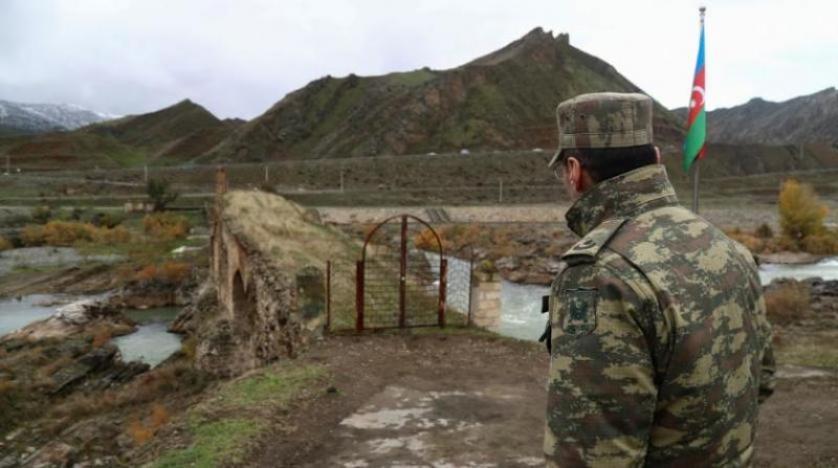
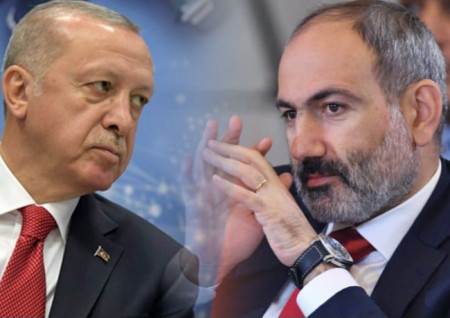

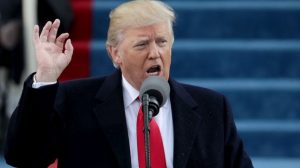


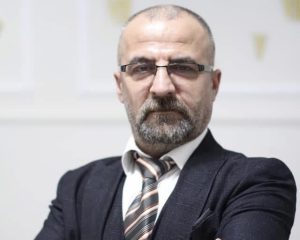
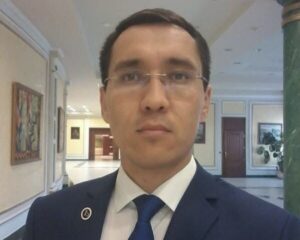
Yorum gönder